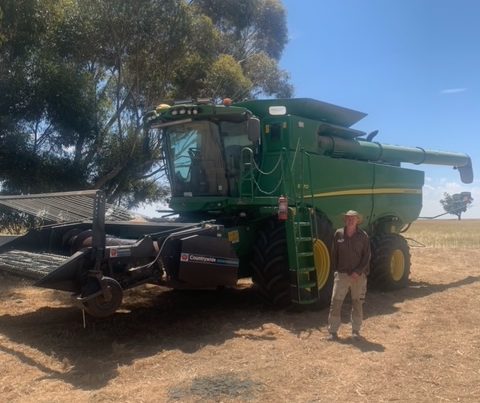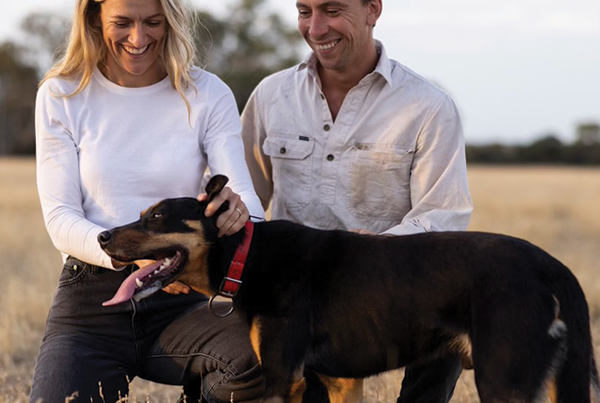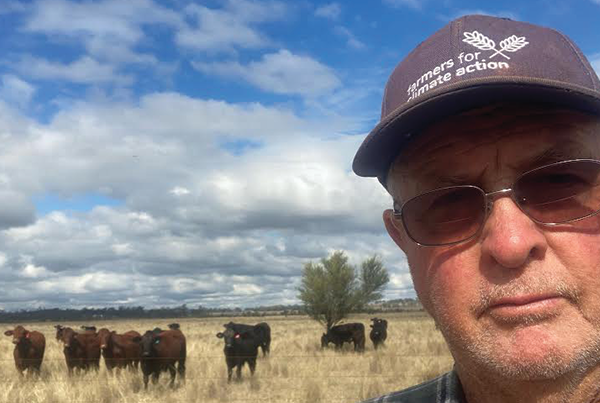At a glance
Who:
Duxton Viticulture
What:
Duxton Viticulture is one of Australia’s largest vineyard holders with over 25 different varietals on vine across 2,400 hectares of vineyards across the Southern Murray Darling Region – spanning from Wentworth through to the Balranald LGA. Duxton Viticulture is a firm advocate for sustainable wine production, actively seeking to assist in reversing agriculture’s adverse contribution to Australia’s environment by applying regenerative farming practices on the land it operates. Several sustainable operating initiatives have been adopted to reduce our environmental impact, including reduction in synthetic fertilisers through increase of solid organic matter, increased microbiological inputs, large-scale cover cropping and minimal tillage practices.
Where:
Southern Murray Darling Region – Mildura/Sunraysia
Can you tell us about your property?
Founded in 2015, Duxton Viticulture operates under Duxton Capital (Australia) Pty Ltd (Duxton Capital). Duxton Viticulture currently own and operate a total of seven vineyards across the Southern Murray Darling (SMD) Region, varying from 15 hectares to almost 1,000 hectares. Duxton Viticulture grows approximately 70,000 tonnes of diverse grape varieties – around 6% of Australia’s total grape supply and increasing. The SMD region is certainly not “cool”, with temperatures often reaching over 40 C. during Summer.
What first got you thinking about climate change?
Climate change is front of mind for Duxton Viticulture, especially in times of severe drought. For Duxton Viticulture, our commitment to sustainability is a key business objective as it enables us to operate for many years into the future. We recognise that sustainable business operations and climate change mitigation strategies go hand in hand and as such we are dedicated to being more efficient in areas such as water and electricity use, as well as our chemical and fertiliser applications.
Has climate change impacted on your farm business?
Climate change has predominately affected us by way of extreme weather events, such as drought, hail, wind, and extreme heat and frost. All of these events at either end of the temperature spectrum have affected harvest yield and caused significant damage to infrastructure. The biggest recent threat that has caused significant yield losses has been extreme heat events, resulting excessive grid electricity demand and subsequent outages. In our case these events mean we cannot irrigate in the peak of summer, causing berries to shrivel and yield loss. We have seen two of these events over the past two summers. In addition, these weather events can also lead to vine related disease outbreaks, such as botrytis in extremely rainy and humid conditions, as well as weeds, pest increase and plant stress.
What are some of the climate-smart strategies you’ve been employing and how successful have they been?
DV have employed a number of successful climate-smart strategies. These include;
- Cover cropping: this has been successful as it allows increased soil carbon, water retention – resulting in less required water use – and cooler under vine temperatures.
- Irrigation monitoring programs: this has been successful as it ensures we are delivery the right amounts of water and least amount of energy while maintaining desired yields.
- Renewable energy: this has been successful thus far, but more investment in this space is required.
- Reduction in synthetic nitrogen based fertilisers: these fertilisers are extremely carbon intensive to make, so switching to organic manures and composts has successfully increased soil health and yield.
All the above strategies, specifically the regenerative agriculture practices, have resulted in year on year yield increase over the past three years, of approximately 23%. To increase soil health we have recently conducted a microbiological soil input trail. We compared 5 different products available on the market across multiple varieties and soil types and found which product had the best results. These products have the ability to free up unutilised bound nutrients in the soil.
Do you use renewable energy on your farm? What are the benefits?
DV uses solar power on several of our vineyards to reduce our overall carbon footprint. One vineyard in particular couples the use of solar power with a battery bank, allowing that site to be completely off-grid, which is great in saving costs. Typically, a site of this size would have an annual electricity bill of approximately $4000-5000 per annum. But, by using renewable energy sources, we have been bill-free for several years now. The primary benefit of using solar power is that we are less reliant on grid energy, mitigating the risk of outage. In the near future, we are looking at implementing a new install that integrates hydrogen fuel cell technology with solar power to further reduce our reliance on grid power and carbon footprint.
If you could send a message about climate change to the Federal Government what would it be?
Climate change’s impact is increasing year on year, and agricultural operations of all scales are truly feeling these adverse effects. The Federal Government has a responsibility to support farmers sequester carbon by ensuring financial viability of sequestration practices. Investment into sustainable viticultural practices benefits every Australian.






